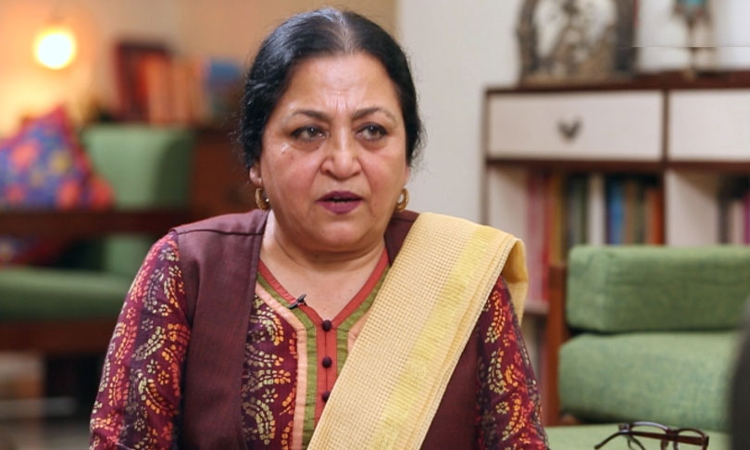This interview was first published on the website, “Hinduismtoday”. (Mar, 1998)
Motivations: So often people presuppose that I take an interest in women’s issues because I came from a patriarchal family filled with male or fatherly oppression. For me, it’s been the contrary. Since I never was treated badly, I cannot bear to see others maltreated. It’s an aberration. It was only after I joined college that I began to see how women grow up with such low self-esteem and therefore allow others to treat them shabbily. As a woman student trying to participate in university politics, I became more sensitive to the kind of pressures women confront. But not raised to accept an inferior, meek position, I would put my foot down and say, “No, this mistreatment of women cannot happen.”
Family background: My father worked for Life Insurance Corporation. He is now retired. My mother is a housewife. I have two younger brothers. Perhaps the only exceptional thing–which I never realized then, but I appreciate now when I see the lives of other women–is the amount of unconditional love, support and freedom, rarely given to kids, that I got from my family, no matter what I did. Not just from my parents but also my grandparents, aunts and uncles. This has contributed the most to my ability to stand by my own beliefs and convictions. In fact, without their continued affection, I think I would just wilt and die. I consider it one of the biggest blessings of my life.
Critics and challenges: The only kind of women I have had problems with are Indian feminists who are overly tuned to Westernized feminism and have very little respect for their own society and people. For some reason they’re the only ones who can’t stand Manushi. Nothing satisfies them. I don’t understand what they want, which is one of the reasons I distance myself from the Westernized feminist movement in India. I have an uneasy feeling they dislike Indian women as they are and want to remold them into creatures alienated from their own social environment.
I chose not to get married. I am happy in the life I’ve chosen, and enjoy the work I do. It’s hard, but very challenging. Yes, stressful. I’m overstressed. I’m overexhausted. I’m overworked.
I am always calling upon my family to help out. My father will rarely walk out of the house without a copy of Manushi in his bag to get subscribers. If I asked them all to even sit on the street to polish shoes to do fundraising for Manushi, they would do it. That’s the kind of unconditional love and support that surrounds me. Which is equally true for most of my friends and volunteers–males and females.
Yoga and worship: The time I spend on yoga, meditation, is, you could say, my puja time. When you’re doing breath control, you’re controlling your mind, focusing it. I don’t do any ritualistic pujas as such. My family inculcated this idea very strongly in all of us, that doing good karma is the best puja. Also, to be honest, I haven’t fully sorted out my relationship with God. The only kind of God that is acceptable to me (and luckily, our Hindu faith teaches it) is the idea that God is sarvavyapi, all pervasive, and indwelling–One who lives in every living being, connects all forms of life to each other. I am unwilling to ever consider God as an external creature sitting in the heavens, telling people what to do, frightening them into submission.
Her personal interests: Music interests me profoundly. Theater, good cinema, also. But I have very little time for those. If I had lived in a world where there wasn’t so much injustice, then perhaps I would have time for other pursuits. If I could, I would have spent my entire life on two things–music and yoga–and learning Sanskrit. But I don’t have those luxuries available to me. At least not in this lifetime.






